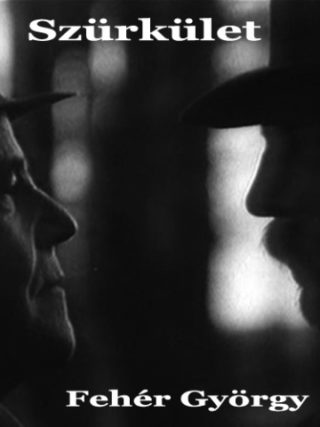 Definitely a love it or hate it experience, a Hungarian made black-and-white adaptation of Friedrich Durrenmatt’s THE PLEDGE done in the highly artistic, ultra slow paced style of Bela Tarr (who was in fact a consultant on the film). Stylistically it’s an undeniably impressive work, although one’s response to it is strictly a matter of personal preference—and patience.
Definitely a love it or hate it experience, a Hungarian made black-and-white adaptation of Friedrich Durrenmatt’s THE PLEDGE done in the highly artistic, ultra slow paced style of Bela Tarr (who was in fact a consultant on the film). Stylistically it’s an undeniably impressive work, although one’s response to it is strictly a matter of personal preference—and patience.
Durrenmatt’s THE PLEDGE inspired the German classic IT HAPPENED IN BROAD DAYLIGHT, as well as the Sean Penn directed Jack Nicholson vehicle THE PLEDGE. TWILIGHT (SZURKULET), from 1990, is easily the most outré film adaptation of Durrenmatt’s tale, adding a religious dimension and sense of overall nightmarishness that aren’t present in any other version. Interestingly enough, much of the music heard on the soundtrack was taken from Popol Vuh’s peerlessly haunting score for Werner Herzog’s NOSFERATU THE VAMPYRE.
TWILIGHT is one of two features directed by the late Gyorgy Feher (1939-2002), the other being 1998’s similarly stylized POSTMAN ALWAYS RINGS TWICE adaptation SZENVEDELY. That film was poorly received, as was TWILIGHT, which garnered largely negative reviews during its early-1990s film festival bow and was essentially buried. As of June 2012 the film has never been made available on home video in any format (outside poor quality greymarket DVDs).
An eight-year old girl is found brutally murdered at the base of a cross in a forest. A police inspector is summoned to the scene of the crime, and he quickly becomes obsessed with the case. A man is arrested for the crime and, steadfastly proclaiming his innocence, promptly commits suicide. The inspector, meanwhile, continues his investigation. He uncovers the fact that the murdered child periodically met a large man at the sight of the cross where her body was found.
From there the inspector quits the police force and retires to a roadside shack that affords him a good view of the comings and goings of people in the area. He also stations a young girl outside in an effort to lure the killer. The ruse seems to work, as a local drunk promptly turns up and makes pervy overtures to the girl. Unfortunately the inspector isn’t around to witness the meeting; he tries to get the girl to describe the man, and inadvertently kills her when she doesn’t. From there the increasingly frazzled inspector heads off for a final confrontation with the killer…
This is a film that has inspired passionate opinions pro and con, and I feel both views are valid. Feher’s images, accomplished through a succession of magisterial tracking shots, are amazing (so much so that they call attention to the rather cut rate sound mixing, with its absurdly over-modulated footsteps). Only a uniquely talented filmmaker could pull off such intricate visuals, in which the play of light and darkness, even in outdoor scenes, is as carefully modulated as the props and performances.
What’s missing is any sense of narrative cohesion. Unless one is familiar with the Durrenmatt novel (or the other films adapted from it) the events of the film’s stripped-to-the-bone narrative will likely seem incomprehensible. The character-based psychology of the story has been largely jettisoned, with the protagonist depicted as a shadowy figure whose face is often darkened or turned away from the camera.
As in many art films past and present, atmosphere is all-important here. This fact is reflected in the many scenic yet profoundly desolate landscapes, which even in broad daylight are made to appear hazy and forbidding. The creeping camera movements are also quite effective in this respect, creating a real sense of voyeuristic unease. The net result is a viewing experience that’s uniquely bleak and troubling, and anything but audience friendly.
Vital Statistics
TWILIGHT (SZURKULET)
Budapest Filmstudio
Director: Gyorgy Feher
Screenplay: Gyorgy Feher
(Based on a novel by Friedrich Durrenmatt)
Cinematography: Mikos Gurban
Editing: Maria Czeilik
Cast: Peter Haumann, Janos Derzsi, Judit Pogany, Kati Lazar, Istvan Lenart, Gyula Pauer, Miklos Szekely, Laszlo Nemeth, Istvan Fogarasi, Pal Hetenyi, Zsuzsa Erdosi, Jozsef Petho
